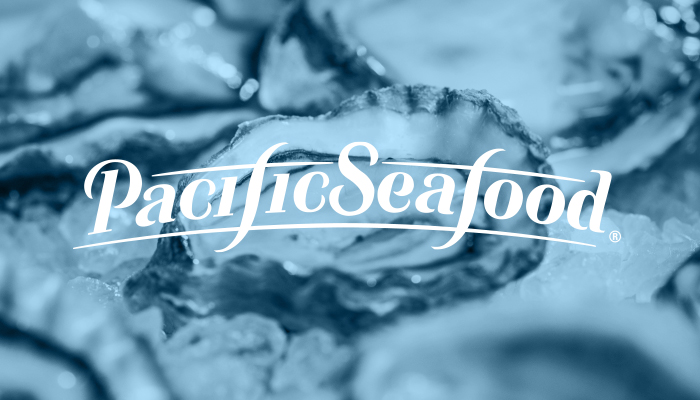Pacific Seafood is the First Company in the World to Offer Four-Star BAP Oysters
Four-star designation signifies highest standard of oysters available

Portsmouth, NH, January 16, 2018
Pacific Seafood, one of North America’s largest seafood companies, is the world’s first and only company to offer four-star Best Aquaculture Practices (BAP) oysters. Four-star is the highest designation in the BAP third-party certification program. For “fed” species, it signifies that a product originated from a BAP-certified processing plant, was sourced from a BAP-certified farm, has utilized seed and feed from BAP-certified hatcheries and feed mills.
Oysters feed naturally on phytoplankton in the seawater, and therefore do not require feed from a feed mill, but because BAP’s mollusk farm standards contain many specifications for responsible stocking rates and monitoring of natural feeding processes, BAP has determined that Pacific Seafood can offer four-star BAP oysters as opposed to just three-star BAP oysters.
“At Pacific Seafood we are dedicated to providing the healthiest protein on the planet, which is why having third-party validation by BAP of our entire supply chain for oysters is critical,” said Chris Jones, hatchery operations manager for Pacific Seafood. “We are proud to begin offering our customers oysters that meet the highest standards of respect, throughout the entire supply chain, for the environment, workers and the community as well as animal welfare and food safety.”
Pacific Seafood’s BAP-certified oyster processing plant and farm are located in South Bend, Wash., while the BAP-certified oyster hatchery is located in Quilcene, Wash. This is the first step toward the company’s goal that all Pacific Seafood oysters achieve four-star status. This year the company will focus on certifying additional facilities and adding new four-star oyster products to the market. Pacific Seafood also operates a BAP-certified steelhead farm in Nespelem, Wash.
Formulated feeds are not used with mollusks, which feed only on phytoplankton and other such naturally occurring organisms in the water. The BAP mollusk farm standards require farms to manage stocking rates to avoid exceeding the environment’s production carrying capacity. It also requires farms to conduct monitoring of neighboring benthic communities to ensure that the consumption of naturally occurring organisms by the mollusks is not causing negative sediment impacts. Farms must also carefully monitor the surrounding environment to ensure it remains free of potential contaminants that may cause human food-safety risks.
These factors all contribute toward ensuring that responsible feeding practices are being adhered to at BAP-certified mollusk farms. Thus the “feed-related” star will be awarded to all BAP-certified mollusk farms associated with a processing plant, farm and hatchery, allowing them to achieve BAP four-star status. In the case of mollusk farms, such as mussel farms, where hatcheries are currently uncommon, up to three stars can be achieved, the first two from the processing plant and farm, and the third by awarding of the “feed-related” star for responsible feeding practices.
It’s been an impressive year of growth for the BAP program, with the number BAP-certified facilities hitting 1,864 through the first 11 months of 2017, up nearly 20 percent from the end of 2016.
https://bapcertification.org/blog/bap-at-1864-facilities/
The total includes 37 mollusk farms producing more than 56,000 metric tons of product per year. The release of the BAP mollusk farm standards in May 2016 opened the door for oyster facilities to pursue BAP certification, as the standards, which replaced the BAP mussel farm standards, encompass all major farmed mollusk species, including mussels, scallops, clams, abalone, and oysters.
https://bapcertification.org/blog/bap-mollusk-farm-standards-released/
About BAP
A division of the Global Aquaculture Alliance, Best Aquaculture Practices is an international certification program based on achievable, science-based and continuously improved performance standards for the entire aquaculture supply chain — farms, hatcheries, processing plants and feed mills — that assure healthful foods produced through environmentally and socially responsible means. BAP certification is based on independent audits that evaluate compliance with the BAP standards developed by the Global Aquaculture Alliance.
About Pacific Seafood Group
Founded in 1941 by the Dulcich Family, Pacific Seafood remains a family-owned and operated company dedicated to providing the healthiest protein on the planet. Pacific Seafood manages all parts of the supply chain from harvesting/fishing to processing, and distribution in order to provide customers with fresh, sustainable, high-quality products. Pacific Seafood Group is headquartered in Clackamas, Ore. It employs more than 3,000 team members across 41 facilities in 11 states. https://www.pacificseafood.com